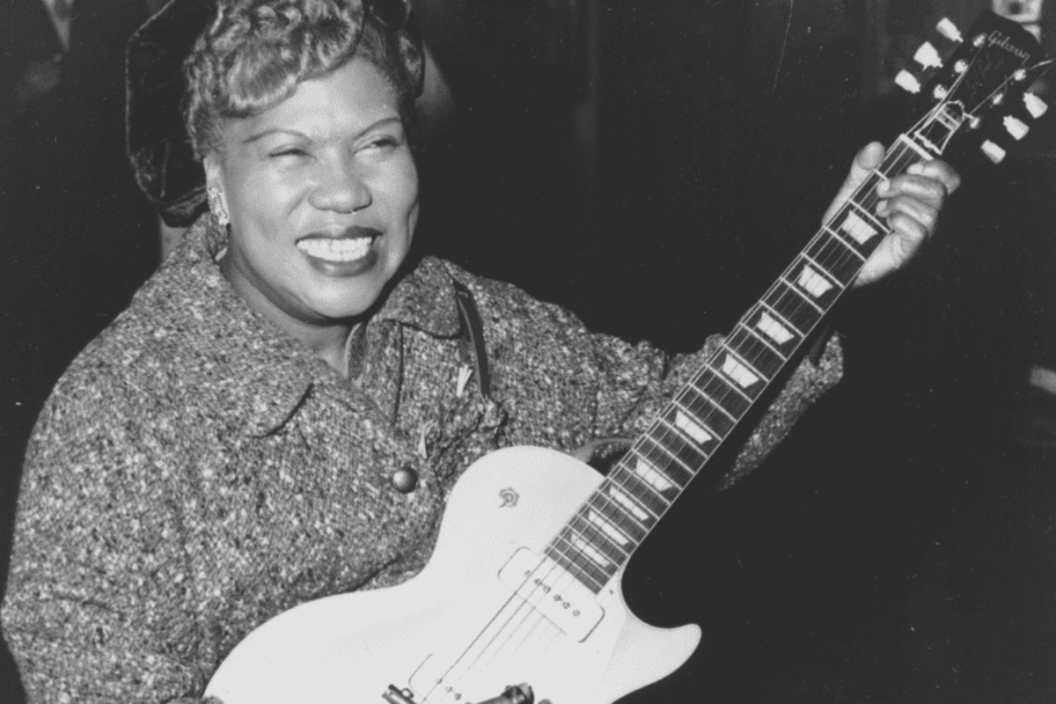It's a common misconception that the rock and roll musical movement originated with men. But if you look to Chuck Berry and Elvis Presley as rock and roll's ultimate origin story, you aren't going back far enough. Allow me to introduce you to "The Godmother of Rock 'n' Roll," who was playing rock & roll on her electric guitar long before Berry and Presley.
Videos by Wide Open Country
Born in Arkansas as Rosetta Nubin, Tharpe's musical beginnings came from singing gospel music in the church. She could play the guitar by the time she was 4 and was touring with her mother's gospel group by 6. She was naturally talented and utilized her God-given skills to pave the path for her own career.
The last name Tharpe is a variation of the surname she gained from her first marriage to the Pentecostal preacher Thomas Thorpe when she was 19. Though the marriage didn't last, it inspired a stage name that would stay with her throughout her career.
Tharpe moved to New York City to pursue her musical career and gave a breakout performance at Carnegie Hall's 1938 Christmas concert. She began performing regularly around town, especially at Cotton Club with Cab Calloway and Duke Ellington. Decca Records hired her to record four songs, including "That's All," which introduced Tharpe to audiences as both a singer and groundbreaking guitarist.
Sister Rosetta was a sensation by the 1940s, with multiple successful albums under her belt. "Strange Things Happening Every Day" hit No. 2 on the Billboard chart. She showed no signs of slowing down, wowing fans with her rendition of "Didn't It Rain." During her career, regardless of her personal faith, Tharpe would perform for any and every audience, from church crowds to secular clubs.
At the peak of her career, you could consider Sister Rosetta a bonafide celebrity. She drove a Cadillac, wore stylish clothes, and even had her third wedding ceremony at Washington D.C.'s Griffith Stadium, where fireworks followed her performance, in which she took the stage clad in her wedding dress.
Unfortunately, Tharpe's career took a turn when she decided to deviate from her signature gospel music. She had long collaborated with fellow gospel singer Marie Knight and the two decided to release a secular blues album. Fans were not happy and her religious following was insulted by her moving away from the faith-based music that her career had been centered around for decades.
After trying to maintain her fan base in Europe, it seemed her career wouldn't recover being overshadowed by newcomers like Mahalia Jackson. Tharpe passed away from a second stroke at the age of 58 in Philadelphia. Despite her fading career in her later years, she is still considered a trailblazer in the music industry. The likes of Johnny Cash, Aretha Franklin, Little Richard and Jerry Lee Lewis were all inspired by her belting vocals and guitar playing skills. Those skills also inspired The King of Rock & Roll, Elvis himself.
Sister Rosetta Tharpe was posthumously inducted into the Blues Hall of Fame in 2007 and even received her own day in her home state of Pennsylvania in 2008, January 11.
Tharpe will be portrayed by Americana singer Yola in Baz Luhrmann's upcoming musical film Elvis.
This article was originally published in September of 2019.
[sweeps]
Now Watch: 10 Legendary Instruments of Country Music
https://rumble.com/embed/u7gve.v43t3h/




